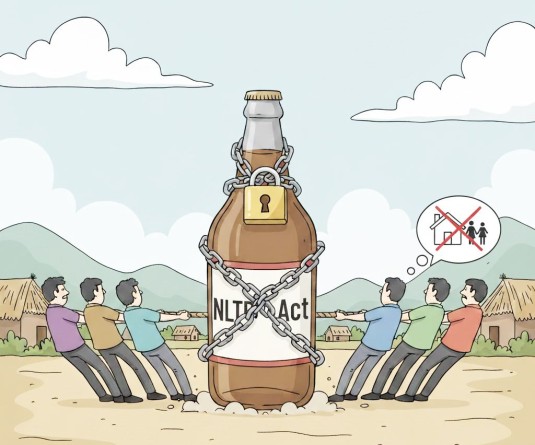
Our Correspondent
Kohima |October 9
Chief Minister T.R. Zeliang today said that based on the success of the VDB system that had enabled the state Government to undertake another path breaking reforms known as communitization of public institutions with the passing of Communitization of Public Institutions and Services Act, 2002, by empowering and delegating the responsibility to the community in the management of local public utilities, services and select activities of the State Government with focus on ownership or responsibility.
“Our initiatives involving the traditional institutions in our development process won us accolades not only within the country but internationally,” he said while addressing the Nagaland VDB Conference 2017 cum Mission Antyodaya Gram Samridhi Evam Swachchata Pakhwada here. When we talk about rural development, it is invariably linked with poverty alleviation and uplift of the living conditions of the rural masses, he said.
“We have the unique history of becoming a state out of a political agreement. At the time of inception of the state, our literacy was very low, development almost non-existent and most of our habitations were confined to the villages with just a handful of towns in existence then. We were necessarily dependent on grants from Government of India then as a newly created state. However, what needs to be noted with due seriousness is that we still continue to almost wholly depend on the GoI even today. The state inspite of making tremendous progress in terms of literacy and other human development indices especially in urban and town areas, our villages are still devoid of basic amenities of life. Therefore, the RD Department and VDBs which are entrusted for the development of rural areas has to seriously ponder on how we can attain the desired level of development. With the resources made available from the various GoI Flagship programmes and State Government schemes being implemented over the years, we ought to take stock of our achievements and take it further beyond with appropriate strategies for sustained and inclusive development,” CM said.
To meet the challenges of rural development and tackle rural poverty in the State, inherent bottlenecks have to be identified, the CM said adding that basically, our rural people are still largely dependent on agriculture marked by absence of skilled manpower for setting-up small and medium industries in villages coupled with lack of financial inclusion, poor connectivity and other infrastructures etc which are pre-requisites for facilitating development in rural areas has to be address appropriately. Multi level approach to increase investment in agriculture, watershed development and empowerment of women, skill development, use and application of information technology wherever feasible, innovative technology and best practices, amongst others, has to be vigorously undertaken to take rural development in the State to a higher level. Provision of urban amenities in rural areas, with special focus on connectivity, health care, educational institutions, sanitation, electricity and drinking water supply etc has to be ensured with multilayer convergence at all levels with inter and intra-Departmental programmes.
“Our experience on MGNREGA convergence has not been very encouraging. Convergence of activities with Horticulture, Forest, Land Resources, Roads & Bridges Departments and other allied Departments must be taken up on priority based on the feasibility and every effort must be made to ensure successful implementation of these projects. In all the Districts, Special Projects best suited to the village/area needs to be identified and taken up through MGNREGA convergence to have larger impact. With the successful outcome of these projects, I am sure tangible and visible MGNREGA projects can be seen across the state,” he said.
He said the Special Convergence programme with Horticulture Department for undertaking massive cultivation of Cardamom in 10 Districts apart from Dimapur District covering approximately 10,000 hectares is being implemented from 2016-17 with the objective of declaring “Nagaland as Cardamom State”.
“It should be the collective will and responsibility of all the VDBs to ensure that such innovative projects with focus on income generating activities is successfully implemented to bring positive transformation and sustainable rural development for a vibrant village economy,” he said.


.jpg)


.jpg)
